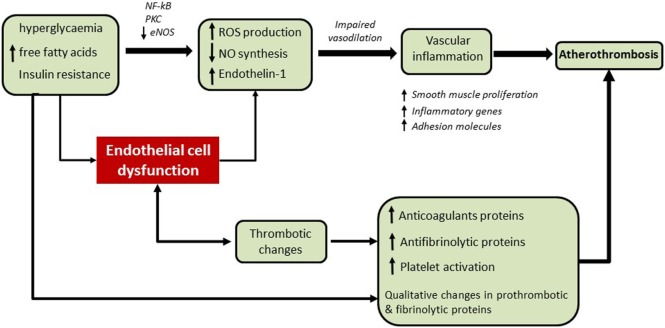Figure 1.
The accelerated vascular pathology and enhanced thrombotic environment in diabetes. Endothelial dysfunction plays a key role in all stages of the atherosclerotic process. In the early stages of the disease, insulin resistance and increased levels of glucose and free fatty acids enhance the production of reactive oxygen species (ROS) and reduce nitric oxide (NO) synthesis via several mechanisms including activation of NF-κB and protein kinase C (PKC) signaling and reduction of endothelial NO synthase (eNOS) activity. Endothelial dysfunction contributes to the impairment of vasodilation, expression of adhesion molecules, and further vascular inflammation. In the latter stages of the disease, endothelial dysfunction results in increased platelet activation and a prothrombotic/hypofibrinolytic environment which facilitates vascular occlusion and atherothrombosis.

